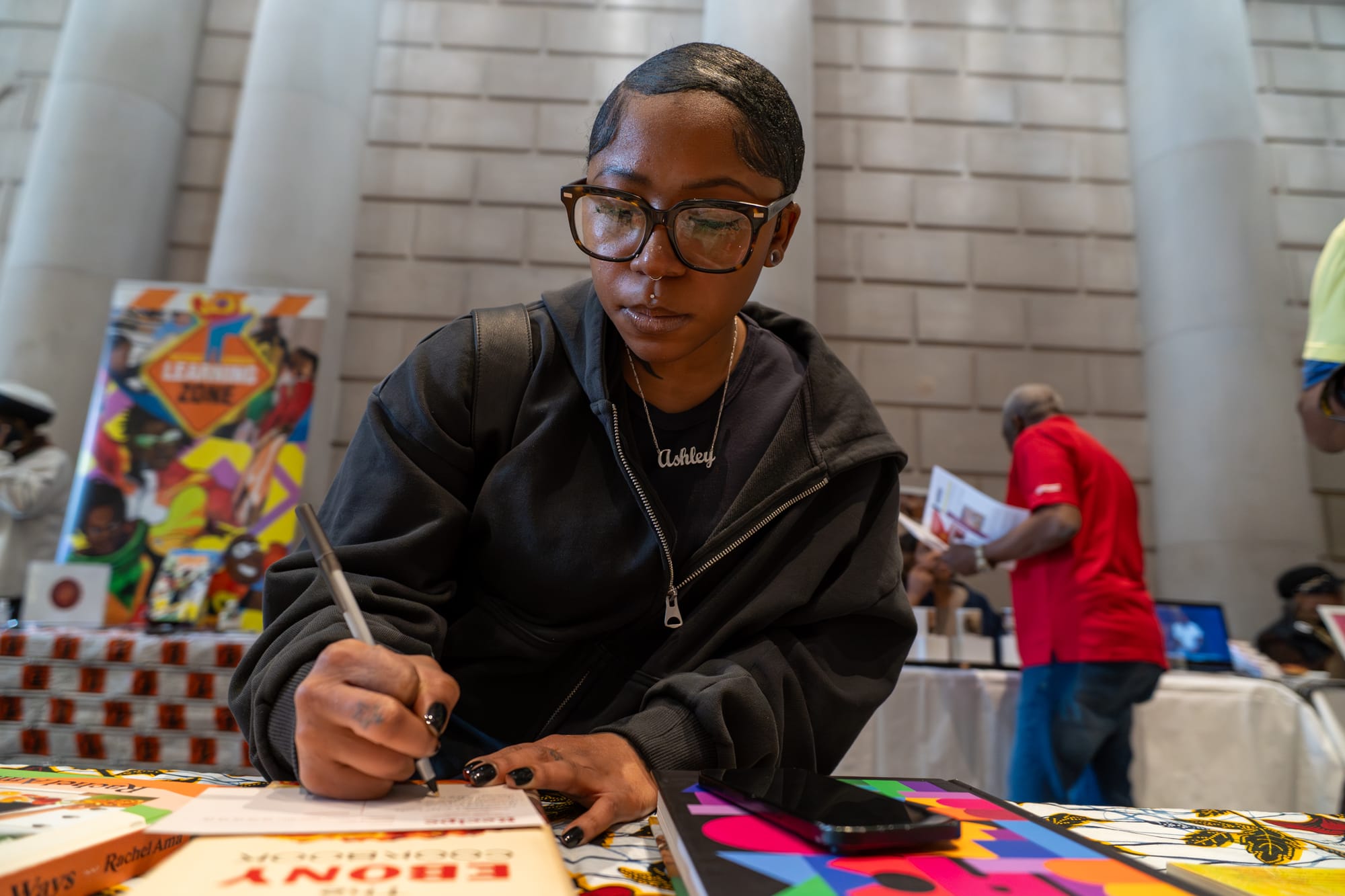A Home, Not Just Housing: How Forget Me Knot is Transforming Youth Care in Philadelphia
Forget Me Knot Children & Youth Services is quietly reshaping the landscape of youth care in Philadelphia.
Forget Me Knot Children & Youth Services is quietly reshaping the landscape of youth care in Philadelphia. At a time when the city is contending with alarming rates of homelessness, instability, and trauma among its young people, the organization offers a deeply human, community-rooted alternative—one that centers not just survival, but dignity and long-term healing.
Founded by Mecca Robinson in 2015, Forget Me Knot serves youth between the ages of 12 and 20, many of whom have aged out of or been underserved by Philadelphia’s overburdened foster care and shelter systems.
The organization was created in response to a persistent truth: too many young people in Philadelphia are slipping through the cracks. Whether aging out of foster care without a plan, fleeing unsafe home environments, or cycling through emergency shelters that lack the resources to address long-term needs, these youth often end up facing the streets alone.
The crisis is immense. In 2023, the School District of Philadelphia identified over 7,400 students experiencing homelessness, a staggering number that has increased more than 20 percent in just a few years. The city's annual Point-in-Time Count revealed that over 1,200 young people under the age of 24 were unhoused on a single night.
These figures barely scratch the surface; they don’t fully account for the many youth who sleep on couches, double up in temporary housing, or avoid seeking help out of fear or shame. In a city already struggling with rising housing costs and limited affordable units, youth homelessness is an escalating emergency.
What makes this crisis even more urgent are the stark disparities embedded within it. Black youth are disproportionately affected, comprising more than 70 percent of the city’s unhoused youth despite representing a significantly smaller portion of the overall population. LGBTQ+ youth also face disproportionate risk—national data suggests they make up nearly 40 percent of all homeless youth, even though they account for a much smaller share of the general youth population.
These disparities are not incidental; they are the result of intersecting systems of racism, homophobia, and transphobia embedded in family structures, institutions, and public policy. Philadelphia has taken some steps to address these realities. In 2022, the city received $8.78 million through the federal Youth Homelessness Demonstration Program, aimed at funding youth-centered housing initiatives, rapid rehousing, and supportive services. While these resources are crucial, they cannot fully solve the problem unless organizations like Forget Me Knot are equipped to do what government systems often cannot: build trust, foster connection, and create a true sense of belonging.
Forget Me Knot’s approach is distinctly relational. It does not operate like a traditional shelter or group home. Instead, the organization emphasizes consistency, emotional safety, and joy as fundamental components of healing. This includes life-affirming rituals often missing from institutional care—birthday celebrations, beach trips, shared meals, and the kind of everyday check-ins that help young people feel seen. Staff members act more like extended family than service providers, offering a stable and nurturing presence that many youth have never experienced.
This kind of environment is especially critical for youth who have been exposed to complex trauma. Many of the young people who come through Forget Me Knot’s doors have experienced neglect, abuse, or abandonment. Traditional systems often respond to these histories with control or bureaucracy, but Forget Me Knot operates from the understanding that healing requires time, consistency, and empathy. Trauma-informed care is embedded into every aspect of their programming, from how staff engage with residents to how decisions are made about discipline, communication, and goal-setting.
The organization’s services extend beyond housing and emotional support. Youth at Forget Me Knot also receive mentorship, life skills training, and workforce development to help them transition toward stability. These offerings are not delivered in a top-down model, but rather co-created with the young people themselves—acknowledging their autonomy, dreams, and unique challenges. The aim is not just to get them off the streets, but to help them build sustainable, self-directed futures.
This work is especially vital given the limited availability of transitional housing for young adults in Philadelphia. Although the city has increased funding for youth-specific beds, there are still fewer than 400 available at any given time—nowhere near enough to meet demand. Many young adults aging out of foster care face immediate homelessness without access to housing, job training, or supportive networks. Organizations like Forget Me Knot bridge that gap, providing not only shelter, but stability, community, and care.
What makes Forget Me Knot’s model so powerful is that it refuses to view care as transactional. Instead of seeing young people as problems to be fixed or liabilities to be managed, the organization treats them as whole human beings deserving of joy, connection, and opportunity. This philosophy challenges a broader system that often measures success in numbers rather than relationships, and it offers a powerful counter-narrative: that meaningful change happens not through quick fixes, but through sustained, intentional investment in people’s lives.
In a city burdened by inequity and resource scarcity, Forget Me Knot stands out as a beacon of what’s possible. It is a model grounded in the belief that love, structure, and community are not luxuries—they are necessities. And in the lives of the young people it serves, that belief is not just aspirational. It is transformative.
For those moved by this work and seeking ways to help, Forget Me Knot welcomes community support. Donations directly fund housing, mentorship, and enrichment activities that help youth thrive. Volunteers are also a vital part of the organization’s mission, whether offering career guidance, organizing care packages, or simply showing up with consistency and compassion. Together, we can help ensure that no young person in Philadelphia is forgotten.




